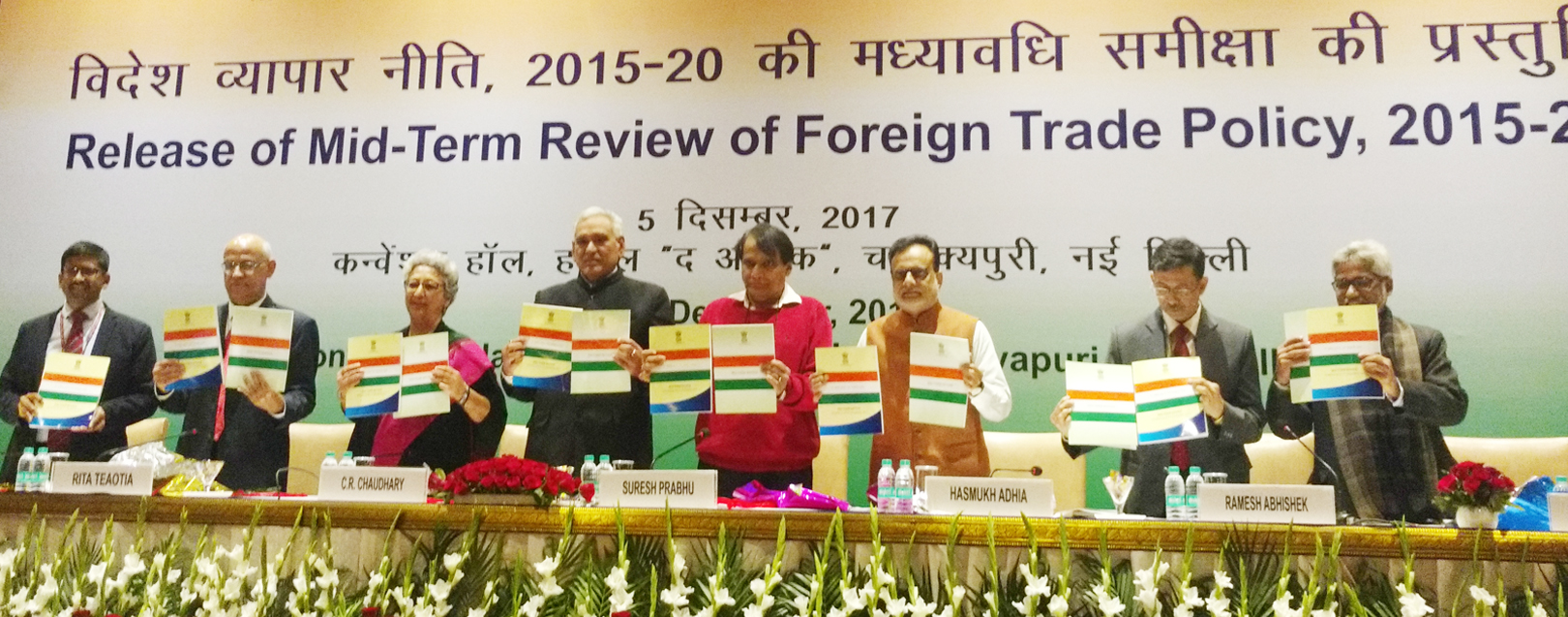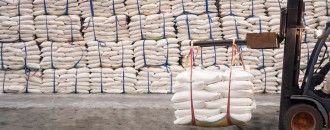
FTP Review: Industry welcomes MEIS & SEIS incentives, hike in duty credit scrips validity
The Dollar Business Bureau
The industry has welcomed the initiatives taken in the mid-term review of Foreign Trade Policy (FTP) – 2015-20, specifically the 2% increase in rates under the Merchandise Exports from India Scheme (MEIS) and Services Exports from India Scheme (SEIS), as well as the raising of validity period of duty credit scrips from 18 to 24 months.
Welcoming the FTP’s mid-term review, Ganesh Kumar Gupta, President, Federation of Indian Export Organisations (FIEO) said that the 2% increase in the MEIS rates for labour intensive sectors such as leather, carpets, handicrafts, tools, marine, medical & scientific products and services such as accountancy, architecture, legal, education, hotel and restaurant will provide much needed respite to these sectors which are facing huge competitiveness from other countries.
He, however, suggested that the Government should gradually extend the MEIS incentives to exporters of other sectors since they are also facing various challenges in exports. A one-time relaxation to meet Export Obligation may be provided to the industry so that they can escape the penal provisions, which will be disruptive and will provide an opportunity to add to exports besides providing employment.
Gupta further said that procedural simplification to replace IEC by PAN; increase in the validity of the scrips from 18 months to 24 months; reintroduction of ARO facility for supply against Advance Authorization/EPCG/EOU; relaxation in export of free of cost samples from 1% to 2% of average exports in preceding 3 years with a ceiling of Rs.2 crore would also mitigate the hardship of the exporters and hassles related to its compliances.
Agreeing with Gupta, FIEO’s Southern Region Chairman Dr. A. Sakthivel said that in the context of picking up of global trade, the additional 2% incentives provided in MIES/SEIS scheme will help the exporters to become more competitive in the international market.
“The focus on MSMEs and labour intensive sectors will help in boosting the Make in India,” he added.
Commenting on the FTP review, FICCI Secretary General Dr. Sanjaya Baru said, “The mid-term review of the FTP 2015-20 contains several positive features. FICCI is happy to see across-the-board rise of 2% in MEIS incentive for exports by MSMEs and labour intensive sectors. This step was much-needed.”
Dr Baru observed that 2% increase in the SEIS incentive for services such as business, legal, accounting, architectural, engineering, educational, hospital, hotels and restaurants would provide impetus for boosting the country’s service exports in non-IT areas.
“Other positive points include contact@dgft service for trade facilitation; raising the validity period of duty credit scrips from 18 to 24 months; elimination of the earlier 12% GST for transfer/sale of scrips; and creation of a new logistics division in the Department of Commerce,” he said.
“While these measures are useful, we have to recognise that effective exchange rate management would be critical to achieve a significant increase in exports from India,” he added.
Rajoo Goel, Secretary General, ELCINA, said, “It is noteworthy that most of the electronic components and products which are of interest to ELCINA members are covered under the revised MEIS rates.”
“ELCINA believes that this is an overdue and positive step as it will largely reverse the damage caused by the reduction of MEIS rates across the board last year. The export industry was unpleasantly surprised by the reduction and lost export orders,” said Goel.
“Another positive is that the FTP is focusing on MSMEs and manufacturing. This is important as benefits should accrue to value added manufacturers which will drive the 'Make in India' initiative,” he said.
“The electronics industry is also enthused by the several procedural simplifications and measures which will release blocked working capital and reduce finance costs which are highly debilitating in the highly competitive global free trade scenario,” he added.
Ashok Rajani, Chairman, Apparel Export Promotion Council (AEPC) said, “We welcome the new measures announced during the mid-term review of foreign trade policy. The mid-term review of the FTP 2015-20 has made provisions which will boost trade facilitation and ease of doing business.”
“The extension of validity of scrips from 18 months to 24 months along with the provision of zero GST on sale of scrips are surely going to help the industry in a big way,” he said.
Rajani observed that the other initiatives like the doing away with testing of samples for drawback purpose and introduction of e-sealing facility for exporters will lead to quick clearances of the consignment. This will not only help in easing the port congestion but will also aid in quick movement of the cargo.
“However, he said, “The exporters were hoping for measures which improve market access and cost competitiveness.”
After the roll out of GST in July this year, the exporters have been facing the problems with refunds and blockage of capital. Thus, in order to resolve the problem of blocked working capital for exporters, the FTP review has focused on enhancing the incentives for labour intensive MSME sectors.
The increase by 2% under MEIS for MSME sectors lead to an additional annual incentive of Rs.4,567 crore, which in addition to the already announced increase in MEIS incentives from 2% to 4% for ready-made garments and made-ups, with an additional annual incentive of Rs.2,743 crore.
Further, the increase in incentives under SEIS will lead to an additional annual incentive of Rs.1,140 crore.
Overall, the incentives under the two Schemes have been increased by Rs.8,450 crore (33.8%) from the prevailing Rs.25,000 crore, leading to boost in exports from the labour intensive sectors and more employment opportunities.
Some of the major sectors benefited under the Schemes are:
- 2,743 crore for ready-made garments and made ups in textiles sector
- 749 crore for leather and footwear articles
- 921 crore for handmade carpets of silk, handloom and coir and jute products
- 1,354 crore for agriculture and related products
- 1,140 crore for services including hotel & restaurant, hospital, educational etc.
- 759 crore for marine products
- 369 crore for telecom and electronics components
- 193 crore for medical and surgical equipment
In addition, the validity period of duty credit scrips has been increased from 18 to 24 months and GST rates on transfer/sale of scrips has been reduced to zero. A new scheme of ‘self-assessment based duty free procurement of inputs required for exports’ has been introduced. There will be no need of Standard Input Output Norms in such cases and this will eliminate delays. The scheme would initially be available to the Authorized Economic Operators (AEOs) and will get expanded as more exporters join the AEO program.
DGFT has launched a Contact@DGFT service on its website (www.dgft.gov.in) as a single window contact point for exporters and importers for resolving all foreign trade related issues and to give suggestions. A state-of-the-art Trade Analytics Division has been set up in DGFT for data based policy actions.
A new Logistics Division has been created in the Department of Commerce to develop and coordinate integrated development of the logistics sector, by way of policy changes, improvement in existing procedures, identification of bottlenecks and gaps, and introduction of technology based interventions in this sector.
The mid-term review of the FTP 2015-20 was released by Commerce and Industry Minister Suresh Prabhu on Tuesday in New Delhi, in the presence of the Minister of State for Commerce and Industry CR Chaudhary, Finance Secretary Hasmukh Adhia, Commerce Secretary Rita Teaotia, DIPP Secretary Ramesh Abhishek, Director General of Foreign Trade (DGFT) Alok Chaturvedi and CBEC Member PK Das.






 to success.
to success.